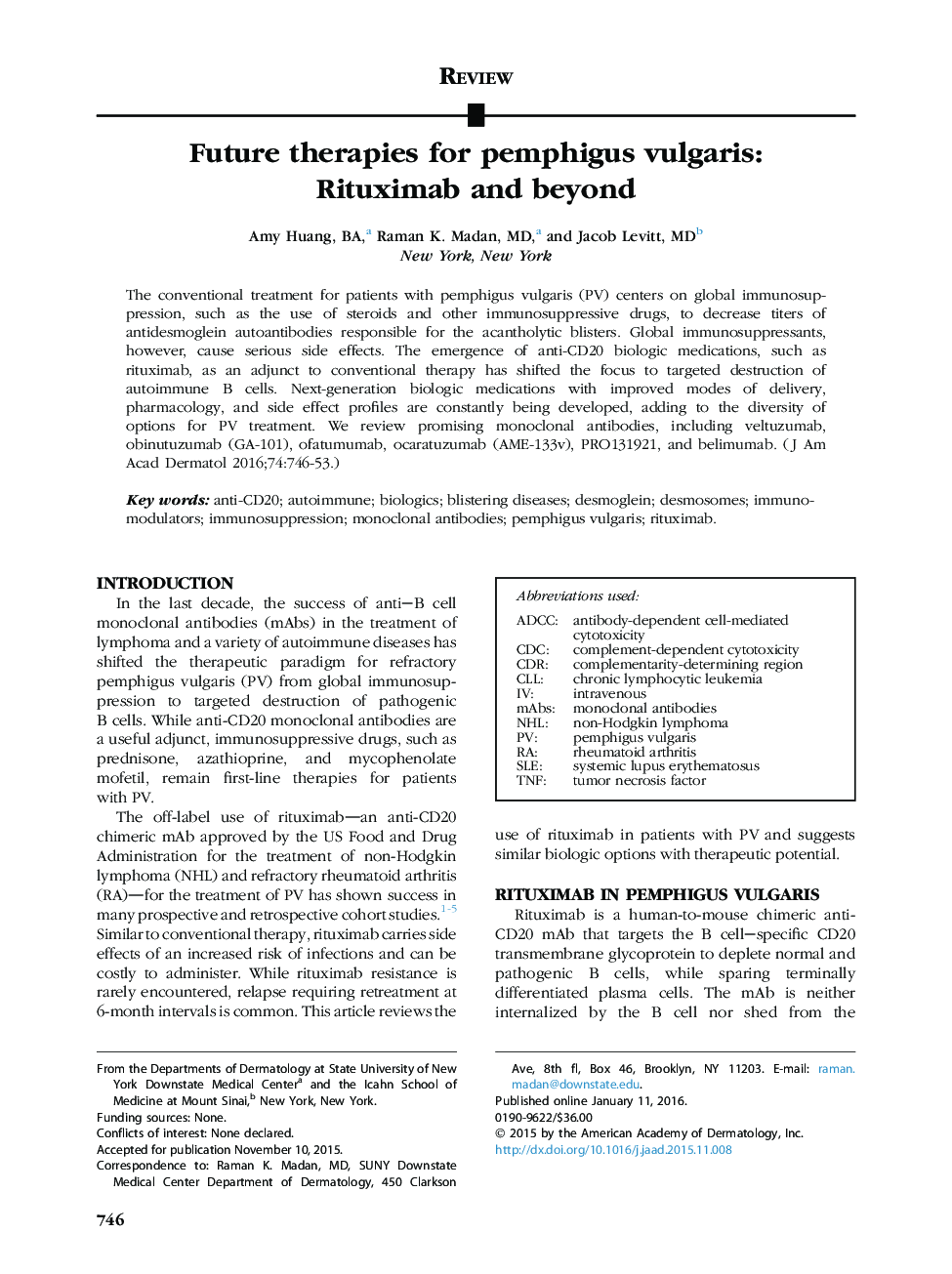| Article ID | Journal | Published Year | Pages | File Type |
|---|---|---|---|---|
| 3204536 | Journal of the American Academy of Dermatology | 2016 | 8 Pages |
The conventional treatment for patients with pemphigus vulgaris (PV) centers on global immunosuppression, such as the use of steroids and other immunosuppressive drugs, to decrease titers of antidesmoglein autoantibodies responsible for the acantholytic blisters. Global immunosuppressants, however, cause serious side effects. The emergence of anti-CD20 biologic medications, such as rituximab, as an adjunct to conventional therapy has shifted the focus to targeted destruction of autoimmune B cells. Next-generation biologic medications with improved modes of delivery, pharmacology, and side effect profiles are constantly being developed, adding to the diversity of options for PV treatment. We review promising monoclonal antibodies, including veltuzumab, obinutuzumab (GA-101), ofatumumab, ocaratuzumab (AME-133v), PRO131921, and belimumab.
